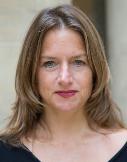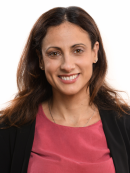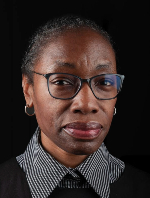
A PhD in International Relations is often seen as a route into academia, but it is also a route into other careers, including in think tanks. Several of our former PhD students have embarked on careers in think tanks, with quite a few rising to leadership positions.
Our Head of Department, Karen E. Smith conversed with three of our PhD alumni, all women, who are leaders of think tanks:
- Rosa Balfour, Director of Carnegie Europe
- Comfort Ero, President and CEO of International Crisis Group
- Nathalie Tocci, Director of the Istituto Affari Internazionali
She began by asking them about their paths to the top, and then asked for their suggestions on how to foster more diversity in the think tank world.
What was your career path from PhD in IR at LSE to the top of a think tank?

[ROSA] My career started in a think tank and then led me to do a PhD part-time while continuing working. My fear was that if I left the think tank world I would struggle to get back in. At that time, most of my seniors did not have PhDs, so it was neither a requirement nor particularly valued. But I felt I needed a PhD to build my confidence, my competence, and my profile – plus I needed to earn my living. So I did both. I perhaps grew professionally more slowly than some peers, but I still moved from the bottom to senior positions during those years of juggling academic and policy research, though I couldn’t have managed the responsibilities of being in a leadership position.
 [NATHALIE] I wrote my PhD while working in a think tank in Brussels. Throughout the years of my doctorate I carried on my think tank work in Brussels and realised how valuable it was on the one hand to bring greater conceptual rigour and method to my think tank work, while on the other benefitting from the greater access to policymakers for my doctoral work. Since then I have sought to constantly maintain one foot in both worlds, adding several more.
[NATHALIE] I wrote my PhD while working in a think tank in Brussels. Throughout the years of my doctorate I carried on my think tank work in Brussels and realised how valuable it was on the one hand to bring greater conceptual rigour and method to my think tank work, while on the other benefitting from the greater access to policymakers for my doctoral work. Since then I have sought to constantly maintain one foot in both worlds, adding several more.
I carried on my work in think tanks in Brussels, the US and Italy, but also sought to maintain a foot in academia, first with two post-doctorates in Florence and more recently as honorary professor in Tubingen. I have added further experiences in institutions – both national and European – as well as the private sector and civil society through membership of boards. I am a big believer in cross-fertilisation and think tanks in many ways lie at the crossroad of many different worlds.
I am a big believer in cross-fertilisation and think tanks in many ways lie at the crossroad of many different worlds.
 [COMFORT] First, I should explain that the reason for undertaking a PhD was largely because my father and an uncle made it clear that as a woman and a black person, I had no choice but to attain the same high education of those who will determine my future path and if possible to achieve more than them. Doing a PhD was the highest I would then attain. My internship at the United Nations Association-UK (UNA while undertaking my PhD) defined the career path I would eventually take. There I was exposed to how to make my thesis relevant to policy actors.
[COMFORT] First, I should explain that the reason for undertaking a PhD was largely because my father and an uncle made it clear that as a woman and a black person, I had no choice but to attain the same high education of those who will determine my future path and if possible to achieve more than them. Doing a PhD was the highest I would then attain. My internship at the United Nations Association-UK (UNA while undertaking my PhD) defined the career path I would eventually take. There I was exposed to how to make my thesis relevant to policy actors.
I was studying and interning at a time of seismic changes: the war in the former Yugoslavia, the war in Somalia, the horror and genocide in Rwanda and the end of Apartheid in South Africa. I wanted my thesis, which focused on interventions in Africa by African states, to be relevant to policymakers both in Africa and outside, particularly the UN and the continent’s main external actors (France, the UK and the US at that time).
A fortuitous moment was a Research Fellow position at the International Institute for Strategic Studies (IISS) that mirrored the last chapter of my PhD. I benefitted tremendously from my one year stint which further opened my eyes to policy actors. An opportunity at the newly created Conflict, Security and Development Group funded by the UK development agency (DIFD), located at the Centre for Defence Studies, King’s College, allowed me to think about the importance of using the rigour and research methodology from doing the PhD to undertake field-work that would usefully shape policy recommendations to government and multilateral agencies.
I came back to Crisis Group – not a think tank, but as we say, a “do tank”, because the model it offered was closest to my vision of policy-relevant analysis to influence change through advocacy.
In the course of my time at King’s College, I knew that I wanted to eventually work in conflict prevention and resolution. But I also knew that I wanted to work in an organisation that combined strong research, policy and advocacy to influence policy makers about bringing an end to conflict. Crisis Group made sense in helping me fulfil that vision as it is rooted in being in conflict affected countries and finding pathways to shaping peace.
Going from there to the United Nations peacekeeping mission in Liberia (UNMIL), was both a combination of wanting to work inside a multilateral agency (or even government agency) to better understand the dilemmas these bodies face to better craft policy. Having the opportunity to do this in Liberia was a personal endeavour because I wanted to see its peace process unfold having studied the country’s civil war.
My decision to then head to the International Center for Transitional Justice was because I wanted to learn more about how to balance peace and justice. But I came back to Crisis Group – not a think tank, but as we say, a “do tank”, because the model it offered was closest to my vision of policy-relevant analysis to influence change through advocacy.
Do you think women still face obstacles in rising to leadership positions in think tanks?
[ROSA] I had a naive expectation that think tanks were quite good for women thanks to the flexibility and informality of the work environment. Indeed, think tanks attract men and women alike. But if you look closer, as I did for a paper not long ago, women get to the top in administration and finance, conference organising, communication, and fundraising but not in the more visible and prestigious leadership positions. And many senior positions are still occupied by men (regardless of their PhDs or not).
The data looked at for that paper suggested that men and women were equally attracted to the job but that men climbed up the ladder in greater numbers. My personal experience was that women in leadership positions were an exception. Now things are improving, but it took a lot of naming and shaming for things to change. Until a few years ago, no one would be surprised by an all white male panel of grey heads.
My personal experience was that women in leadership positions were an exception. Now things are improving, but it took a lot of naming and shaming for things to change.
[NATHALIE] I think think tanks have come a long way and of this we should be proud. Many of my peers are women, two wonderful ones writing with me on this blog. This was certainly not the case only a few years ago. When I entered the think tank world in 1999, it was infinitely more male dominated. In fact I cannot recall one major think tank that was led by a woman in the early 2000s.
Important strides forward have been made. However, much more remains to be done, especially in non-European and Western think tanks, not to mention other professional fields with whom think tanks work closely, from institutions to the private sector.
[COMFORT] I agree with both Rosa and Nathalie. Many of these institutions have come a long way. Recently Chatham House too announced a positive change in direction by hiring Bronwen Maddox as its new director and chief executive. Women have generally been stuck in middle management so it’s good to be in the company of a crop of women at the helm of some premier think tanks and NGOs. But let’s also be clear that we’ve earned the right to occupy these positions. And where we need to do better is in ensuring diversity in the background of women who rise. Here I think we need to ensure we are giving opportunities to non-Western women.
We’ve earned the right to occupy these positions. And where we need to do better is in ensuring diversity in the background of women who rise. Here I think we need to ensure we are giving opportunities to non-Western women.
What can be done to encourage more diversity in think tanks, and what can be done to support a more diverse workforce while they are in post?
[ROSA] There are two main paths to improve diversity in think tanks. The first is to do more to support professional growth from within, with coaching, mentoring, building networks and creating opportunities. This also entails looking at recruitment and how think tanks connect to universities for internships etc. Confidence plays an important part. Think tanks are full of male prima donnas (we need to find another expression!) and many women have not been trained to think quite so highly of themselves to stride to the top of think tanks. Fortunately, the world of public policy is also diversifying so there are many more opportunities now, but people need to have the skills to thrive in competitive environments too.
The other level is broader than gender and is about diversity. The European think tank scene is terribly monolithic: white and with a certain educational background from a limited set of top tier universities. Our natural environment is highly educated, cosmopolitan, and polyglot. There is very little social, ethnic, or religious diversity. Yet if think tanks want to be at the cutting edge of public policy, they need to embrace a wider range of views, backgrounds and experiences to better inform their analyses. Even if think tanks do not have a specific role in representing society, they do have a key responsibility in channelling expert analysis not just to decision-makers but also to broader sectors of society.
If think tanks want to be at the cutting edge of public policy, they need to embrace a wider range of views, backgrounds and experiences to better inform their analyses.
[NATHALIE] Much like think tanks were ahead of the curve in promoting women in leadership roles when compared to the worlds of politics, policy and business, they should remain at the forefront in deepening and widening what diversity means. This is true both in terms of gender – going beyond understanding gender as “only” limited to the promotion of women – as well as understanding diversity more broadly including an attention to LGBTQ rights, and paying more attention to diversity in terms of nationality, religion, social background etc. This is true especially of national think tanks, where it is often difficult yet crucially important to insert more perspectives from other countries in order to provide a more rounded view of that particular country’s foreign policy.
[COMFORT] Rosa and Nathalie are spot on. Diversity, and I would add inclusion, for a long time appeared to be about bringing women in; dealing with gender balance. But diversity for me means much more than this. It is about the full scope of identities and backgrounds Nathalie has pointed out. It is about our recruitment structures as Rosa notes: the networks where we advertise, and the questions that we ask to ensure the process doesn’t result in hiring the same type of people.
It’s also about not placing value in particular types of education and professional paths, but recognising that certain unconventional profiles can be helpful in making our work more effective especially in an increasingly multipolar world and where the liberal order is under severe threat.
It’s also about not placing value in particular types of education and professional paths, but recognising that certain unconventional profiles can be helpful in making our work more effective.

There are many more of our former PhDs in leading positions in think tanks, including Bastian Giegerich at IISS and Karin von Hippel at RUSI.
Read more about our alumni and join the community
Read about our featured alumni on the blog
Read more about the PhD programme in the Department of International Relations.


